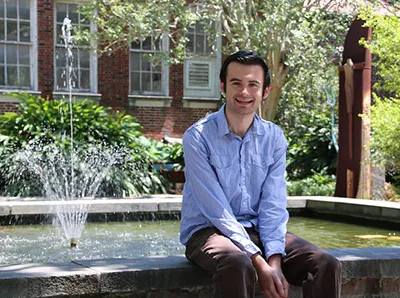
As an English major, I’ve read and studied a good amount of books—but it’s not just about the books. The books, as I’ve learned from my English professors, are a way into larger conversations. They give us clues as we pursue some of the most nagging questions: how does culture work? What is the relationship between the world an author creates and the world outside the literary work? What kind of object is a book, and how does the nature of this object influence what we get out of it? What counts as a book, or a text, anyway? These questions, as my professors have been pushing me to consider over the past four years, are important for the simple reason that we’ve been expressing ourselves in writing for over 5000 years. We need to understand the role writing plays in the world because it is clearly a significant one.
Over my time at Tulane, the faculty in the School of Liberal Arts—especially, but not exclusively, in the English department—have consistently challenged my notions of what a liberal arts education can do. The classroom environment that our SLA faculty create, I think, is unparalleled. The way our professors and the texts they assign encourage us to enter into a conversation with the ideas presented, rather than just learn the facts rote, has not only set us on the path to becoming shrewd critical thinkers, but it has also taught us that we have a voice in the conversation. The world of tomorrow will need our ideas, or at least our critiques of ideas as they stand now, and the School of Liberal Arts at Tulane has kindled in my peers and me a determination (backed by a real preparedness) to be among the idea-stewards of the future. Our future—non sibi, sed suis.

